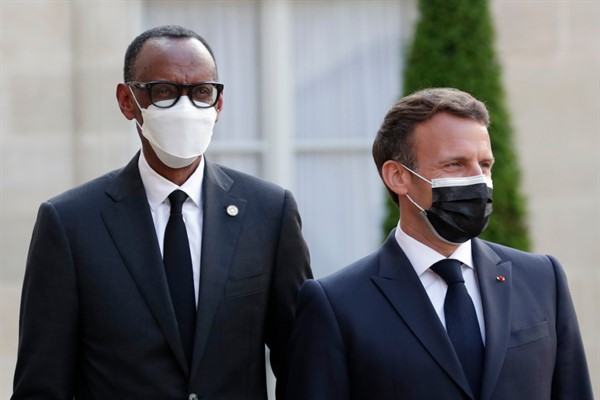In late May, French President Emmanuel Macron traveled to Rwanda with the aim of turning the page on three decades of tortured relations with the ruling Rwandan Patriotic Front, or RPF, over France’s role in the 1994 Rwandan genocide. The door to Macron’s visit was opened after a French government-sponsored commission found that the country bore “serious and overwhelming” responsibility for the genocide, though it also found that France was not complicit in this crime.
The highlight of Macron’s visit was a speech he gave at the genocide memorial in the capital, Kigali, in which he spoke of the need for France to “recognize its part of the suffering it inflicted on the Rwandan people.” But ultimately, the visit papered over significant gaps between France and Rwanda in their understanding of this painful historical chapter. It thus missed an opportunity to pursue historical truth and accountability in both countries.
The complicated relationship between France and Rwanda dates back many decades, to decolonization. When Rwanda and two of its neighbors, Burundi and the Democratic Republic of Congo, became independent in the early 1960s, France quickly signed cooperation pacts with them. Although these three African countries had been Belgian colonies or trust territories, the agreements they signed with France were similar to the ones Paris established with its own former colonies, including pledges for development aid and military assistance.

